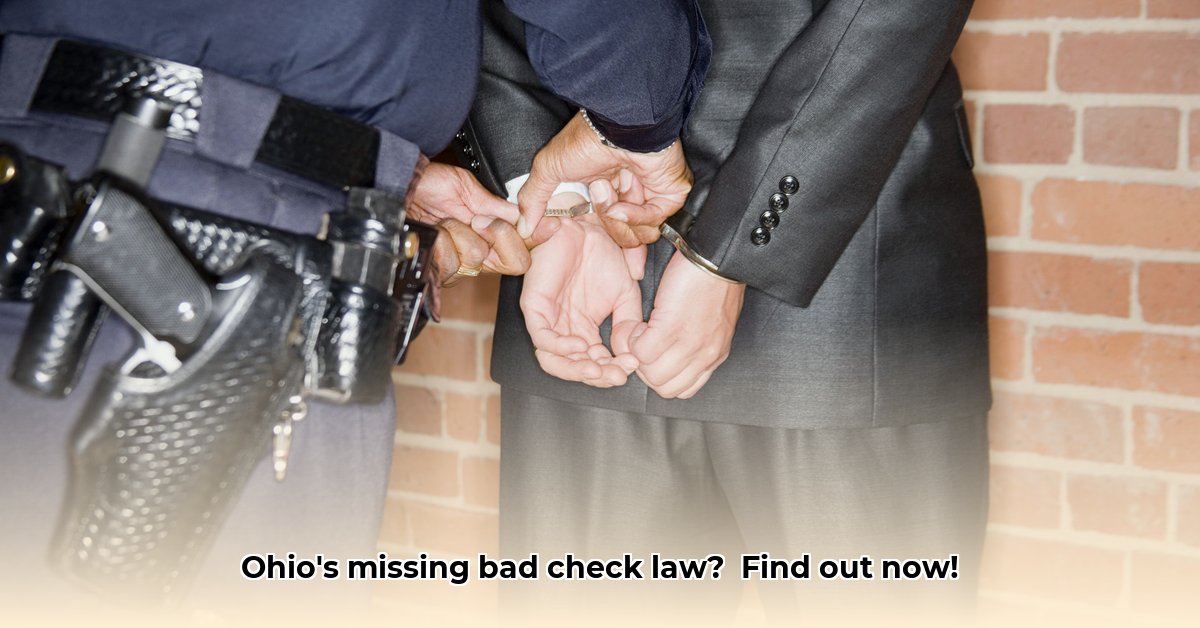
Passing Bad Checks ORC: Finding Ohio's Elusive Law
Trying to find Ohio's law on bad checks (Ohio Revised Code Section 2913.11) feels like searching for a needle in a haystack. It's supposed to be online, but it's mysteriously unavailable! This guide will help you locate this missing information. We'll walk you through several methods, from contacting relevant state agencies to utilizing commercial legal databases. Whether you're a lawyer, a student, or a citizen, we'll make this process easier. We'll also discuss why this inaccessibility is a problem and suggest solutions for improved access to legal information.
The Inaccessible Ohio Bad Check Law
Finding Ohio Revised Code Section 2913.11, the law concerning bad checks, has become unexpectedly difficult. It's unavailable online where it should be. This lack of access creates problems for everyone, from legal professionals to citizens needing to understand their rights. This situation undermines the principles of open government and easily accessible legal information. Why is this happening? The reasons are unclear, but the inaccessibility demands a solution. Isn't readily available legal information essential for a transparent legal system?
Your Action Plan: Locating the Missing Law
Despite the initial obstacle, several paths can lead you to the needed information. Let's explore them step-by-step:
1. Contact the Ohio Legislative Service Commission: This is your primary resource. They maintain Ohio's laws. Find their contact information online and politely request Section 2913.11. Clearly explain your need for this specific information. Persistence is key.
2. Explore Commercial Legal Databases: LexisNexis and Westlaw are subscription-based legal databases. While not free, many public libraries offer access, providing a likely source for the missing section.
3. Seek Assistance from Legal Aid Organizations: Ohio's legal aid organizations offer free or low-cost legal assistance. They frequently handle cases involving bad checks and likely possess the relevant information.
4. File a Public Records Request (if necessary): If other methods fail, you can formally request the document using Ohio's public records laws. While this process takes time, it's a guaranteed route to accessing public information.
Alternative Information Sources
Even without direct access to Section 2913.11, related information can provide valuable context:
- Related Ohio Revised Code Sections: Explore sections dealing with fraud, theft, or financial crimes. These might contain analogous situations or interpretative information.
- Case Law: Review Ohio court decisions involving bad checks. These rulings explain how the law is applied, providing workable insights.
The Broader Issue: Improving Access to Legal Information
The difficulty in finding Section 2913.11 highlights a larger problem: inconsistent online accessibility of public legal documents. This lack of transparency hinders access to justice. It's not merely inconvenient; it undermines the fundamental principles of open government. We need better online access to all Ohio laws, ensuring that legal information is readily available to everyone. Contact your state legislators and voice your concerns about this critical accessibility issue. Your advocacy can create real change.
Key Takeaways:
- The inaccessibility of Ohio Revised Code Section 2913.11 presents a significant obstacle.
- Several alternative methods exist to access the information, although none are ideal.
- Advocating for improved online access to Ohio's legal code is crucial for transparency and access to justice.